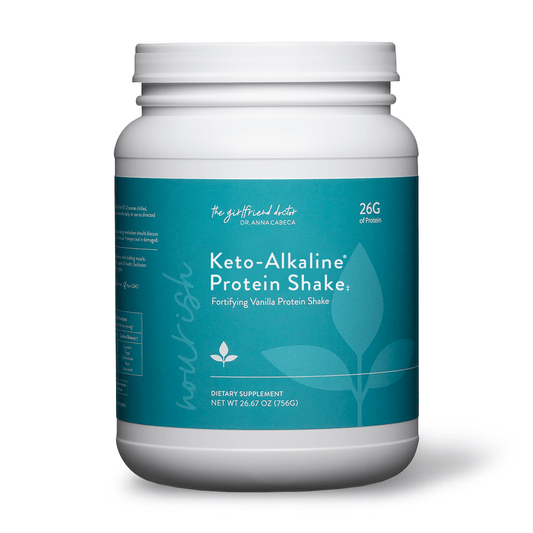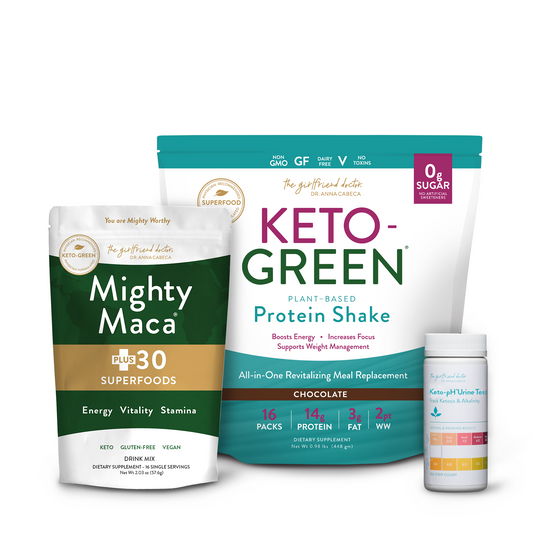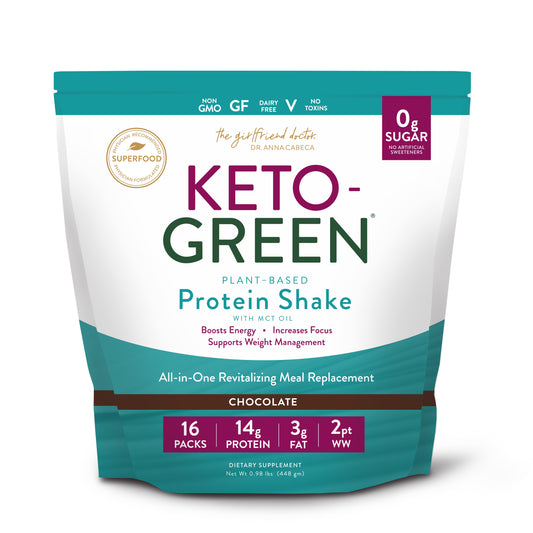This article will address:
- Why I am an advocate of intermittent fasting
- The health benefits of fasting (it’s more than just weight loss)
- How fasting has been shown to preserve learning and memory function!
- Why fasting is a great idea for menopausal women!
- What’s the fuss about mTOR and autophagy, and what’s it have to do with fasting?
- How fasting supports your circadian rhythm and a healthy gut microbiome
- Why you still need to feast!
I just returned from traveling to Poland, and I must admit that while I was able to stay Keto-Green® most of the time due to the delicious whole good foods available everywhere, I did quite a bit of feasting too! All of the beautiful foods, desserts…stunning presentations…. and yes, I will admit that I had a chocolate pastry one morning for breakfast… Delicious!
Intermittent Fasting
Part of my healthy routine includes intermittent fasting as well as committing to a variety of other Keto-Alkaline/Keto-Green lifestyle principles (such as good stress management, sleep, positivity, patience, pleasure and exercise, etc.).
Especially during Lent, fasting is an integral part of my desire and commitment to be present, fill my tank with spiritual practices and NOT over-indulge. I was able to incorporate 3 different 72-hour fasts into my schedule this lenten season and very much took those opportunities to detox both my body and my spiritual well being.
Many of you have likely heard about fasting tied to religious beliefs and practices. In the religious context, fasting can be viewed as a sign of discipline, self-test and self-control. It can also be viewed as a period of spiritual cleansing and becoming more connected to God.
Fasting has also long been used as a means – outside of a religious context – to affect the body’s composition, health and longevity. It was initially viewed as a way to increase athletic performance, and then as a weight loss tool.
More and more research has examined the health benefits of fasting, finding many significant impacts to our bodies – at the cellular level – when we restrict the time we “feed” and increase the time we fast.
So what does the research actually say, and should you be fasting, too? (I think you should and I will explain why)… I will also tell you why the occasional feast is also important!
Strict fasting should not be done without your doctor’s approval if you are under treatment for a medical condition or are Type 1 diabetic. Fasting is also not recommended during pregnancy or for children.

Focusing On The “When” And Not The “What”
Fasting is when we restrict ourselves from the intake of food, not through intentional calorie restriction, but through meal timing restrictions. Turns out, though, that when you restrict the time that you eat you will likely also reduce your overall calorie consumption as well.
Fasting is about WHEN you eat, versus WHAT you eat, although I do suggest people get on a healthy eating regimen before they introduce fasting. Fasting is like painting your house, that additional protective layer on your investment. You don’t want to paint the house if you haven’t worked on the wood rot already, right? You need a good foundation, and then fasting helps solidify your efforts…protecting the investment of your health.
There are several different types of fasting. My Keto-Alkaline program encourages the use of intermittent fasting, with a goal of approximately 16/8. This means the window in which you should be “feeding” is roughly an 8 hour period. The period you are fasting, starting after dinner is roughly 16 hours, although in my program we always start much lower than that, at 12 hours or so. This type of fasting is also sometimes referred to as time-restricted feeding in the scientific literature.
Small incremental steps towards lengthening your fast time allow you to develop the new habit most successfully. If you start too aggressively you just won’t feel well, and you will quit. You want to think of fasting, as well as diet, as developing new, life-long habits versus quick fixes.
Other fasting programs may have you skip days when you won’t eat for 24 hour periods.
Still, others may have you on modified diets during the fasting time-frame, or on cleansing diets (so consuming some maximum amount of calories per day, or taking in specific nutrients along the way). You can google fasting and find many articles, books and recommendations.
I’m a proponent of intermittent fasting with a 15/9 or 16/8 window, or as close as you can get to that on a regular basis. This means I will fast 15 hours between dinner and breakfast, sometimes longer, and sometimes not… and then eat two good Keto-alkaline meals and possibly one light meal or protein shake in the 9-hour window, and no snacking. I also will do 24 to 72-hour fasts from time to time.
I feel that intermittent fasting has shown the best – and quickest – result for the thousands of women who have participated in my many women’s restorative health programs, especially when it is built on healthy Keto-Alkaline eating during the feeding window. It is relatively easy to start and for the most part, easy to stick with. That’s so important. Intermittent fasting has been shown to produce higher compliance (that’s the ability to stick with it!) than prolonged periods of fast. (1)
The most difficult issue you may have with intermittent fasting is likely changing existing rituals you may have, such as eating comfort foods and snacks late at night, or eating an unhealthy carb-heavy breakfast in the early morning. So tough to change out life-long learning, even when we know something isn’t good for us!
Most of us grew up with sugary and carb-loaded breakfast, and as we had our own small children may have even opted for quick/on the go packaged breakfast bars and foods.
And who doesn’t like comfort foods – or the glass of wine – after a long day? I totally get that!!!
But we need to try and swap out those unhealthier habits for some delicious herbal tea or some hot water with lemon. Again, small steps… and once it is a habit it becomes easier…and maybe even quite enjoyable!
Learning to listen to your body, to determine when it is truly hungry, versus bored or in need of some energy fix, really will become easier as you go.

Our Daily Window for Eating Continues to Grow! (And That's The Problem)
Think about how our lives have evolved so differently from our ancestors’, especially relating to the availability of food and the blurring of night and day!
Our ancestors originally had to hunt for food… and then eventually grow it… and then it was available fresh at a market… and then frozen, or packaged for ease-of-preparation, and then it became FAST, as in fast food… available 24 hrs. a day and via drive-thru in many cases!
At the same time, with the advent of electricity… and the increasing connectivity and enjoyment of everything electronic, we are never “in the dark.” We are never out of touch. We stay up late and expose our eyes to light from a variety of sources.
Many of us, especially shift workers… but including people who travel, are workaholics, are on their iPads or watching television screens late at night, or may have other sleep-related issues… are affecting our internal circadian clocks.
Yet our bodies were designed to live on a 24 hr circadian clock for light/dark (a beautiful process controlled through the light hitting our eyes’ retinas). Our food consumption/expenditure, and all of the bodily activities that get us through each day and night (hormone control, cellular repair, digestion…you name it!) depend on a healthy internal clock.
Research has shown that our lengthened days result in our over-eating. And that late-night eating further impacts our internal clock by delaying digestion, impacting our sleep and more.
So how do we get back to the circadian rhythm we were designed for?
One way is through healthy fasting.
I’ll talk a bit about what happens during fasting (so many good things!) and then a bit about how it supports a healthy circadian rhythm.
What Happens When We Eat? (Are YOU Storing Or Burning Fat?)
When we eat frequently we produce more insulin, and too much lingering insulin is becoming one of our nation’s largest chronic health issues, leading to diabetes, obesity, dementia, cancer and other diseases.
Every time we eat, often as the response to a hormone called Ghrelin, which causes us cravings and a feeling of hunger (think Ghrelin = hungry gremlins!), insulin is produced to control our rising blood glucose levels. Insulin helps get glucose and various amino acids into cells. Glucose is stored as glycogen in the liver and muscles and is the body’s main source of easy energy.
Food is digested and nutrients are absorbed over a period of several hours.
When your fat stores receive nutrients a hormone called Leptin is released, which tells your brain that you are satiated or full, for the moment anyway. Your insulin levels should decrease and the cycle starts again the next time you eat.
If you eat too often your insulin levels remain high. You can lose insulin sensitivity (also known as insulin resistance), which can lead to diabetes. People who eat small meals many times a day often have this issue because they are never allowing their insulin to drop to a naturally low level. High levels of insulin signals to your body to go into a fat storage mode instead of a fat burning mode.
Alternatively, after 12 hours or so of not eating, your glycogen reserves get tapped out. So your body needs a new energy source; it releases fat cells into the bloodstream, which travel to your liver and are burned for energy.
So your body starts burning fat! (yes!) and this is a state referred to as ketosis. Insulin levels go back down and your metabolic measures improve.
Ketosis can occur as a result of fasting, or as a result of eating a ketogenic diet.
Ketosis can be measured by looking at chemicals that are released during ketosis called ketones. Ketones also trigger the release of BDNF which helps strengthen neural connections in the areas responsible for learning and memory.

In my Magic Menopause program, we actually test the ketones in our urine, along with our pH levels. Testing is the only way you really know you are burning fat, and dipping one of my Keto-pH® Uric Acid Test Strips in your urine is a lot simpler than getting blood drawn and tested for ketones!

With that said, blood ketone testing can be done at home just like blood sugar testing and is the gold standard but urine testing is an inexpensive and more convenient way to regularly test.
There are a lot of other health benefits associated with getting the body into ketosis as well. Fasting has been shown to increase ketones at a much greater amount than by ketogenic diets alone. Getting alkaline first thought is an important part of this, I just cannot emphasize strongly enough! This is a core principle of my Keto-Green diet!
The Health Benefits Of Fasting
There are numerous studies that support the health benefits of fasting. It has been shown to improve biomarkers of disease (including cardiovascular disease, breast cancer and diabetes), increase metabolic function, improve insulin sensitivity, reduce oxidative stress, reduce cravings, and help people become more efficient fat burners. (2)
Who wouldn’t want all of that?
In clinical trials assessing both chronic calorie restriction in the 20–50% range and intermittent fasting, while calorie restriction was still superior for weight loss, both interventions had similar effects on the reduction of visceral fat, insulin and insulin resistance. (3) Intermittent fasting and full fasts are superior in that there is less rebound weight gain or drop in metabolism when compared with calorie restriction.
Fasting has also been shown to preserve learning and memory functioning. Animal brain studies have been performed by the National Institute of Aging (part of the National Institutes of Health), finding that there is a protective benefit of fasting to brain neurons due to ketones. Read more about ketones as a food source for your brain and the research that has shown ketones' positive effects on brain health and cognition.
Here is a TEDx video from 2014 that I am including as I feel it is an easy to understand presentation on how fasting positively impacts the brain.
Ketones represent kind of a metabolic switch for more than just brain health. That switch shifts us from fat storage and lipid/cholesterol synthesis to the utilization of fat through fatty acid oxidation and fatty acid derived ketones. This switch has the potential to improve body composition in overweight people, slow disease processes and slow aging processes.
Some specific research on time-restricted feeding (like my 16/8 model) illustrates just how impacting this metabolic switch can be.
One study allowed overweight participants to eat their daily caloric intake within a self-selected window, 10-11 hours in duration.
Reducing eating duration reduced daily caloric intake by up to 20%!
Additionally, participants lost up to 4% of body weight in 16 weeks, retaining this loss for up to 1 year. This also supported a healthy circadian clock, reporting improved sleep at night and improved alertness during the day. (4)
Additional studies have also suggested that time restricted feeding provides a reduced risk of breast cancer. In a study examining the self-reported duration of overnight fasting (time restricted feeding) and breast cancer incidence, a prolonged overnight fasting period of ≥13 h correlated with reduced breast cancer risk. (5)
There is so much research on the topic of fasting. The challenge in wading through all of it is in understanding precisely what type of fasting has been done, as well as “who” the population is within a given study. Some studies, for example, have found positive outcomes only in overweight people, but not in people who are not obese or suffering from metabolic markers.

Why (Healthy) Fasting May Be Helpful For Women
Most of the women who have participated in my women’s restorative health programs have embraced fasting, to some degree, as a proven strategy for weight loss as well as to help them restore their circadian clock and tame hormone imbalances. While the initial week or so may be challenging, most women find that it is an easy habit to develop.
And let me just emphasize we want HEALTHY fasting. Some women take it too far, and feel unwell (so they stop, usually stopping both their fasting as well as their ketogenic – or other – healthier diet). When you are fasting, you need to be doubly sure that when you are feeling that you are taking in the healthiest nutrients that your body needs, nourishing your body at the cellular level.
Along with the above breast cancer study, fasting has proven to be a good tool for other metabolic diseases. (6)
Here is a good and relatively easy to read the research article on the benefits of fasting specifically to women. (7)
Health benefits mentioned include,
- Reduced risk for menstrual problems.
- Help manage PCOS symptoms.
- Reducing body weight.
- Improved reproductive health in early adulthood.
- Improved metabolic features (insulin sensitivity and risk factors for cardiovascular disease and diabetes).
- Improved mental health during the menopause transition.
- Reduced symptoms of anxiety and depression.
- Proved effective in diminishing stress levels.
WOW!
Fasting Inhibits mTOR And Increases Autophagy
Intermittent fasting improves cellular and molecular health. It supports enhanced mitochondrial health, repairs DNA and supports a process called autophagy.
Autophagy is a form of a cellular cleaning, and it is important because the accumulation of garbage cells is believed to be a hallmark of aging. In addition, these cells also have a greater risk of becoming infected or cancerous.
Think of it (very simplistically!) this way. Eating prevents autophagy. When your body has lots of nutrition (primarily protein) and calories it triggers an enzyme called mTOR.
mTOR stands for “Mammalian Target of Rapamycin” and mTOR is a powerful inhibitor of autophagy.
So we don’t want too much mTOR, right? Natural inhibitors of mTOR are ketogenic diets and intermittent fasting! (yeh!)
Too much mTOR can lead to obesity, diabetes and neurodegenerative diseases. Low levels of mTOR have been found to decrease cancer risk, decrease inflammation, improve insulin sensitivity and may increase longevity.
Your Gut Microbiome And Your Internal Clock
Fasting allows your digestive tract to “rest and digest!”. Giving your digestion a break can help to heal any damage that you may have done to your gut lining. That damage may be causing you to have low immunity and/or inflammation (through the leaky gut).
While most people don’t necessarily relate fasting to gut health beyond the above point, I think fasting and your gut health are intertwined, as they both relate to our circadian cycle.
Did you know that many functions of your digestive tract exhibit sleep-wake rhythms? Gastric emptying and blood flow are greater during the daytime than at night and metabolic responses to a glucose load are slower in the evening than in the morning. (8)
Some limited animal and human studies have shown that incorporation of regular fasting intervals and eating in accordance with normal daily circadian rhythms (daytime hours for humans, night-time for rats) may help maintain optimal metabolic function.
This graphic depicts how fasting can influence the microbiome and circadian clock, resulting in metabolic changes…and the improvement to risk factors for disease. Courtesy.

People – and other organisms – evolved to restrict their activities to the day and have their bodies perform critical physiological restorative processes at night. Our internal clocks facilitate this. Our hormone secretion patterns and our ability to sleep are all tied to this internal clock.
While our “master” biological clock is located in the suprachiasmatic nuclei (SCN) of the brain’s hypothalamus and responds to day/night (light stimuli), we have other similar “clocks” throughout our body, such as in the liver. There, feeding is the dominant timing cue.
It has been hypothesized that desynchronization between the SCN master clock and peripheral circadian clocks disrupts energy balance and leads to increased risk of chronic diseases.(9)
Research has shown the disruption of natural activity/rest, day/night, feeding/fasting cycles facilitate excessive caloric intake. You can read more on this if so inclined (it is fascinating). (10)
Hormone release, including melatonin (to facilitate sleep), growth hormone and cortisol are all affected.
Cellular metabolism, repair and cell division are all part of our 24 hr clock as well.
Shift-worker studies show that night-shift work was associated with decreased levels of the satiety hormone leptin, therefore more grazing and eating. Individuals subjected to circadian changes in day/night shifts or meals showed elevated insulin and other adverse metabolic changes.
One interesting piece of research had people log their food intake. The results? Out of 156 adults, almost 50% ate during a prolonged window of time every day (>15 hours). 80% consumed a food or non-water beverage within an hour of waking up and 50% consumed food or beverage less than 2 hrs (or equal to) before bedtime.(11)
Yikes… so as we further erode our awake/sleep cycles, we eat more because we’ve extended our eating window.

Why Do We Need To Feast?
With all the positives about fasting…let me throw in an entirely different concept, and that is the need to feast as well!
Just like when I was traveling in Poland recently and eating that chocolate pastry, ah-hmm, or those times I go out for a late dinner (and enjoy my glass of red wine) or fix a big breakfast for my girls; you need to live your life with joy!
And that does mean the occasional feasting!
Many of our most significant bonding opportunities, with family and friends, involves a beautiful meal and lingering conversation around the dinner table.
So while I support intermittent fasting wholeheartedly, I do not think poorly of myself when I decide that tonight is a feast night! And that also goes for the little treats here and there… so don’t beat yourself up!
I also try and feast on treats that have health benefits! Did you know that chocolate can be healthy for you? Check out this article,here.
One of the things we do in my Keto-Green diet and lifestyle program is to cut ourselves some slack! Stress works against us in so many ways (burns out our adrenals, causes hormone imbalances and inflammation), so we need to reach out and connect with others and enjoy toasting those connections!
In my Magic Menopause program, women learn to make small adjustments to their everyday habits, to incorporate the principle of alkalinity for best health, to be accountable and measure their progress (self-testing pH/ketones/blood sugar), and to live life joyfully (take time to feast!).
Take some time to read about the benefits of making those changes yourself. There is a lot of great info on my blog.
And as I and my family ended our Lenten fasting… it was time to celebrate. And we did feast with family! I cooked braised buffalo short ribs and roasted cauliflower with Tahini dressing. Avamarie made Mediterranean green salad with my garlic, olive oil lemon juice dressing, Amira made stuffed grape leaves, and Brittany served the bubbly!
But now, it is time to once again focus on not over-indulging and a renewed commitment to our health! Oh, and I know it is hard as the dark chocolate bunnies are now on sale!
I hope you have truly enjoyed this article as much as I enjoyed writing it and teasing out the great research. Give fasting a try, safely, starting with intermittent fasting, and let me know how you do.
You Might Also Like to Listen to A Great Couch Talk Interview With A Fasting Expert!
We’ll be talking more about fasting and its impact on managing insulin and metabolic syndrome in future blogs, but here's a great podcast to check out. My guest talked about how testing glucose isn’t the whole story as to what is happening in regards to insulin and other hormone activity! So what should you do?
She also talked about the importance of autophagy in regards to anti-aging and disease prevention. Check out the podcast on fasting now.
Oh, and remember, as with any lifestyle change including diet or dietary restrictions, check with your doctor to make sure fasting is right for your own particular medical situation.
References:
- https://www.ncbi.nlm.nih.gov/pmc/articles/PMC5064803/#CR3
- Int J Obesity 2011;35:714-27
- https://www.ncbi.nlm.nih.gov/pmc/articles/PMC5388543
- https://www.ncbi.nlm.nih.gov/pmc/articles/PMC5388543
- https://www.ncbi.nlm.nih.gov/pmc/articles/PMC5388543
- https://www.ncbi.nlm.nih.gov/pmc/articles/PMC4960941/#ref9
- https://www.ncbi.nlm.nih.gov/pmc/articles/PMC4960941/#ref9
- https://www.ncbi.nlm.nih.gov/pmc/articles/PMC4516560
- https://www.ncbi.nlm.nih.gov/pmc/articles/PMC4516560
- https://www.ncbi.nlm.nih.gov/pmc/articles/PMC5388543/
- https://www.ncbi.nlm.nih.gov/pmc/articles/PMC5388543/








